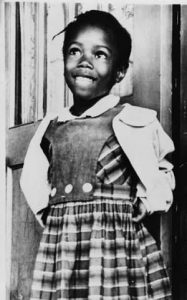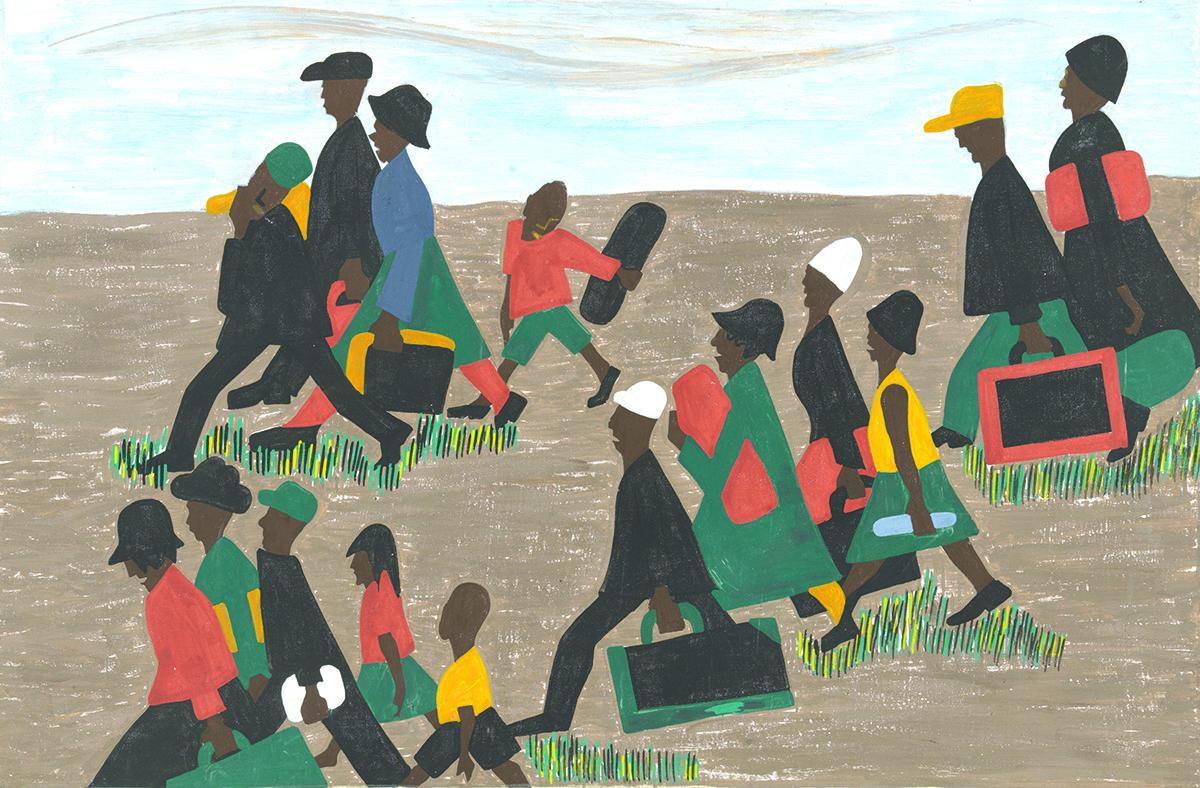
Right up there through the history books honoring brave students who lead the integration movement was a kindergartner names Ruby Bridges. Many don’t know a lot about this brave little girl but I think she played a prominent role in the civil rights movement. She had a mother with a dream: for a daughter to have better opportunities than she did. Her mom knew the white school nearby was better than the black schools so she marched holding her daughter’s hand to make a change.
For one little girl entering into their school many parents pulled their kids out of school, threatened her and her family, she had to spend the first day at the principal’s office for protection, and she was put in a class by herself with the only teacher willing to teach her. That was just the tip of the iceberg, as her father lost his job, her grandparents got evicted from their sharecropping farm, and even the grocery store stoped selling goods to her mom. All this didn’t deter her and she kept going to school until more black students started enrolling in the school.
Ruby was only in kindergarten and was already civil rights activist through her actions. She had to have four federal Marshall’s escort her to schools through a screaming mob, and she still went to school everyday. Some may say as a kid, she only followed her mom’s orders, but if my mom was moving me away from my friends and sending me to a school like that, I would have thrown so many tantrums, that she would have no choice but to let me back into my old school.


